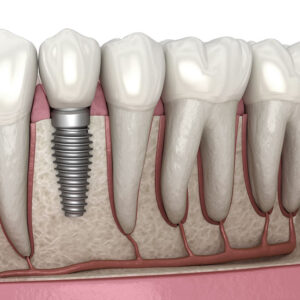Introduction to GMP Certification
When people shop for supplements, they often see the phrase “GMP Certified” on the label. But what does it really mean? Why is it such a big deal in the health and nutrition industry? In simple terms, GMP certification is one of the strongest indicators that a supplement brand takes safety, quality, and transparency seriously. And in today’s world—where the supplement market is filled with thousands of products—this certification is more important than ever.
What Does GMP Stand For?
GMP stands for Good Manufacturing Practices. These are strict guidelines set to ensure that supplements are produced safely, consistently, and with high quality. Think of GMP as a rulebook that manufacturers must follow to make sure what’s inside the bottle matches what’s on the label.
Why GMP Certification Matters in the Supplement Industry
Supplements are consumed to improve health, so quality matters. Without strict manufacturing standards, products can be contaminated, mislabeled, or improperly dosed. GMP certification helps prevent these issues by making sure every step of the production process meets strict safety requirements.
Understanding GMP Standards
Core Principles of GMP
GMP guidelines focus on:
-
Proper hygiene and cleanliness
-
Accurate documentation
-
Quality control testing
-
Trained personnel
-
Safe equipment and facilities
-
Standardized processes
These principles ensure that supplements are produced under controlled conditions.
Regulatory Bodies That Oversee GMP Compliance
Several organizations monitor GMP compliance, including:
-
The FDA (Food & Drug Administration)
-
NSF International
-
USP (United States Pharmacopeia)
Each plays a role in verifying that manufacturers follow strict safety standards.
Difference Between GMP Certified and GMP Compliant
A company can follow GMP guidelines (GMP compliant), but GMP certified means an independent organization has inspected and confirmed they follow those rules consistently. Certification is more trustworthy than merely claiming compliance.
The Manufacturing Process of GMP Certified Supplements
Ingredient Sourcing and Testing
It all starts with raw materials. GMP-certified facilities test every ingredient for purity, potency, and potential contamination. This ensures that only clean and effective ingredients go into production.
Quality Control During Production
Throughout the production process, multiple tests are performed to verify:
-
Correct dosage
-
Absence of contaminants
-
Consistency of each batch
It’s like having a quality checkpoint at every stage.
Packaging, Storage, and Distribution
Even after production, GMP rules continue. Supplements must be stored safely, packed in clean containers, and labeled correctly. This ensures the product stays fresh and effective until it reaches consumers.
Benefits of Choosing GMP Certified Supplements
Safety and Purity Assurance
GMP certification minimizes the risk of harmful contaminants like heavy metals, microbes, or chemicals.
Consistency and Accuracy of Dosage
You get exactly what’s listed on the label—no more, no less.
Transparency and Trustworthiness
Brands with GMP certification show that they value quality and customer safety above cheap production shortcuts.
Common Misconceptions About GMP Certification
Is Every Supplement Manufacturer Required to Be GMP Certified?
Surprisingly, the answer is no. While the FDA requires manufacturers to follow GMP rules, certification itself is voluntary. Only brands committed to higher standards seek certification.
GMP Certification vs. Other Certifications like NSF and ISO
While GMP focuses on manufacturing quality, other certifications like NSF and ISO validate additional safety, purity, and quality standards. Many top brands combine certifications.
How to Identify GMP Certified Supplements
Labels and Verification Methods
Look for:
-
GMP or cGMP seals
-
NSF Certified GMP labels
-
Third-party testing badges
You can also visit the manufacturer’s website for official certificates.
Signs of Fake or Misleading GMP Claims
Be cautious if:
-
The label looks low-quality
-
There is no third-party testing
-
The brand has little online presence
-
The company cannot provide proof upon request
Why GMP Matters for Popular Supplement Categories
Vitamins & Minerals
These supplements must have accurate dosages to deliver the required nutritional benefits.
Herbal Supplements
Herbs can be contaminated easily, making GMP certification essential for safety and purity.
Sports Nutrition Products
Protein powders, pre-workouts, and fat burners are popular targets for adulteration. GMP certification protects athletes and fitness enthusiasts.
The Future of GMP in the Nutritional Supplement Industry
Role of Technology in Compliance
Modern tools like AI, automation, and digital tracking make it easier to monitor production and maintain consistency.
Increasing Consumer Demand for Safe Supplements
As people become more health-conscious, the demand for credible, certified supplements is growing rapidly.
Conclusion
Choosing GMP certified supplements is one of the smartest steps you can take to protect your health. With strict quality standards, reliable testing, and transparent manufacturing practices, GMP-certified products offer peace of mind in a crowded market. Whether you’re buying vitamins, herbal products, or sports nutrition supplements, always look for the GMP certification to ensure you’re getting something safe, effective, and trustworthy.
FAQs
1. Are all supplements in the U.S. GMP certified?
No, not all supplement manufacturers pursue official certification. Many only follow basic GMP compliance.
2. How do I verify a brand’s GMP certification?
Check the brand’s website, packaging seals, or ask the manufacturer for certification documents.
3. Does GMP certification guarantee results?
No, it guarantees safety and quality—but results depend on your body and the supplement’s formulation.
4. Is GMP certification expensive for manufacturers?
Yes, certification requires audits, high-quality equipment, and strict processes, so it can be costly.
5. What is the difference between FDA approved and GMP certified?
The FDA does not approve supplements, but it requires manufacturers to follow GMP guidelines. Certification is voluntary and involves third-party verification.
Please read our latest blogs The Health Benefits of Using the Best Deep Cleaning Services Dubai


